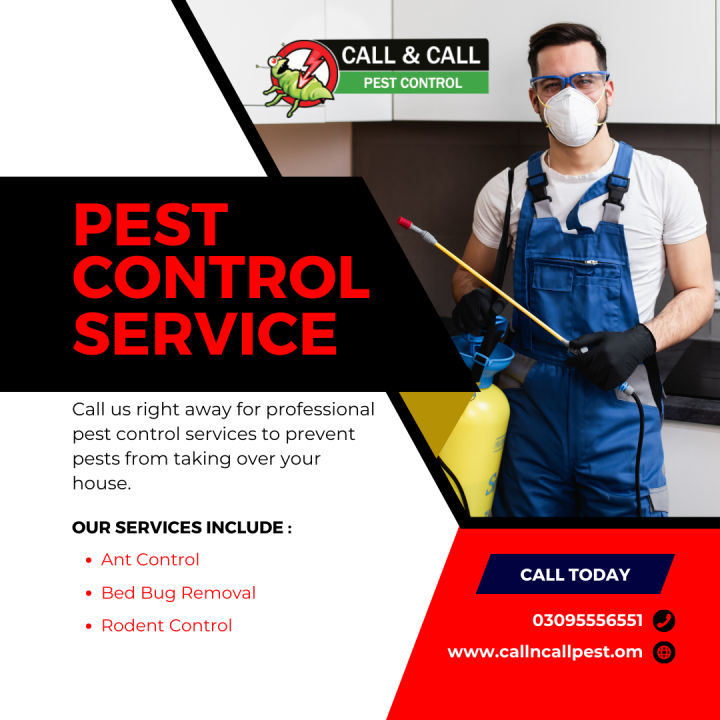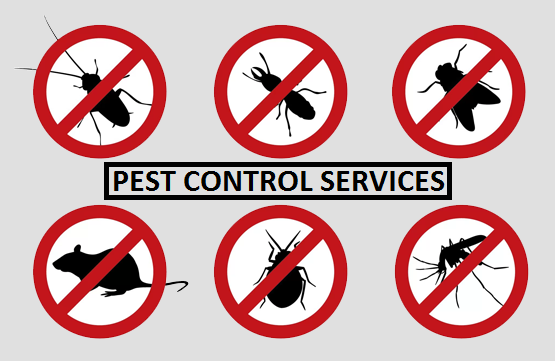Bid Farewell to Vermin: Pest Control Clovis Specialists at Your Solution
Bid Farewell to Vermin: Pest Control Clovis Specialists at Your Solution
Blog Article
Recognizing the Various Methods to Parasite Control: A Comprehensive Overview

All-natural Insect Control Techniques
Utilizing eco-friendly methods such as friend growing and organic bug control is essential for efficiently managing parasites in farming settings. Companion planting entails growing various crops in distance to hinder insects, enhance nutrient uptake, and enhance total plant wellness.
Organic insect control involves presenting natural killers or virus to manage pest populations. Ladybugs, as an example, feed on aphids, controlling their numbers without the need for chemical pesticides. An additional instance is using Bacillus thuringiensis (Bt), a microorganism that targets certain insect parasites while being safe to humans, animals, and beneficial insects.
These eco-friendly techniques not only reduce the reliance on artificial pesticides yet also assist protect biodiversity and soil health. By integrating all-natural insect control techniques into farming practices, farmers can accomplish sustainable insect management while reducing unfavorable influence on the atmosphere.

Chemical Bug Control Solutions
In enhancement to all-natural insect control approaches, the use of chemical insect control remedies plays a considerable duty in effectively managing pest populations in farming settings. Chemical insect control remedies are formulated to target specific parasites that may cause considerable damages to crops. These services frequently contain artificial pesticides that are made to remove insects quickly and efficiently.
One of the key benefits of chemical parasite control options is their effectiveness in regulating insect problems on a huge scale. Farmers can apply these options utilizing numerous techniques such as spraying, fumigation, or seed treatment to secure their crops from harmful bugs, weeds, and conditions. In addition, chemical insect control services are reasonably very easy to apply and can offer rapid results, helping farmers secure their yields and minimize financial losses.
However, it is important to utilize chemical insect control services deliberately to reduce prospective adverse effect on the environment, non-target microorganisms, and human wellness. Correct application methods, adherence to security guidelines, and routine surveillance are important to make sure the accountable use chemical insect control options in farming methods.
Organic Pest Control Approaches
Organic pest control approaches take advantage of natural killers or microorganisms to handle insect populations in farming setups successfully. This technique supplies a environment-friendly and lasting option to pest administration, decreasing the dependence on artificial chemicals and lessening damage to the setting. One usual biological control method is the introduction of natural enemies, such as ladybugs or parasitical wasps, to target details pests. These killers eat the bugs, assisting to regulate their populaces naturally - pest control clovis.
Another organic control technique involves using virus like infections, fungis, or bacteria to infect and eliminate pests. Generally, organic pest control methods supply a lasting and targeted remedy to pest administration in farming.
Integrated Bug Management (IPM)
Integrated Bug Monitoring (IPM) is an extensive technique that integrates different top article insect control approaches to successfully take care of and lessen pest populaces in agricultural systems. IPM concentrates on long-term avoidance of insects with a mix of organic, cultural, physical, and chemical control methods. By incorporating these different methods, IPM aims to minimize dependence on chemical pesticides, decrease environmental effect, and promote lasting insect administration practices.
One key element of IPM is using organic controls such as natural predators, parasites, and microorganisms to manage pest populaces. This technique uses the power of nature to maintain an equilibrium between parasites and their natural enemies without creating injury to the atmosphere.
In addition, IPM includes cultural techniques like plant rotation, hygiene, and habitat control to create negative problems for pests and disrupt their life process. Physical controls such as barriers, mulches, and traps are additionally used to stop insect problems.
Mechanical and Physical Pest Control Strategies
Using non-chemical approaches, such as mechanical and physical bug control strategies, is a critical aspect of extensive bug monitoring techniques, building upon the foundation of Integrated Bug Management's alternative technique. Mechanical bug control involves the usage of physical obstacles or catches to stop parasites from accessing and damaging plants or structures. This technique can include methods like mounting displays on windows, making use of row covers in farming, or employing sticky traps to capture pests.
Physical parasite control approaches, on the other hand, concentrate on straight removing parasites via physical ways. As an example, utilizing warm therapies to remove bed bugs or vacuuming up insects like ants or crawlers can be effective methods to manage infestations without making use of chemicals. By integrating these mechanical and physical pest control methods into an Integrated Bug Administration plan, experts and people can minimize reliance on pesticides while still efficiently reducing and handling pest populaces damages.
Verdict

In addition to all-natural bug control approaches, the utilization of chemical bug control services plays a substantial duty in properly taking care look at here now of pest populaces in farming environments.One of the crucial advantages of chemical insect control services is their performance in regulating bug invasions on a large scale.Integrated Bug Management (IPM) is a thorough strategy that incorporates numerous insect control methods to effectively take care of and reduce pest populaces in agricultural systems.Utilizing non-chemical methods, such as physical and mechanical bug control methods, is a crucial aspect of extensive bug administration methods, developing upon the foundation of Integrated Pest Monitoring's alternative approach. By integrating these physical and mechanical pest control techniques into an Integrated Bug Administration plan, people and professionals can minimize dependence on chemicals while still successfully minimizing and managing pest populations damages.
Report this page